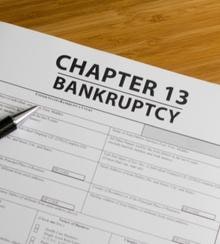Is Medical Debt Dischargeable in Bankruptcy in Michigan?
Updated on 19 May 2025
It is often assumed that medical debt cannot be discharged in bankruptcy, but actually, this is not the case. The truth is that, in Michigan, you can include your healthcare bills in your Chapter 7 or Chapter 13 filing. In fact, the bankruptcy process is the only way that many hardworking Michigan families can find relief from the endless battle with their debts.
What Happens if You Cannot Pay Your Medical Bills in Michigan?
It is not uncommon for people to find themselves in an impossible situation when it comes to paying back substantial medical debt. Given the tremendous cost of healthcare in the United States, many people find that their bills follow them around for the rest of their lives. While some hospitals provide forgiveness programs, there are typically strict limitations on who can qualify, which means that these programs will do nothing to help most people.
If you are unable to pay your healthcare bills in Michigan, it can damage your credit score and impact your ability to obtain financing for a house or car. Your account may be sent to a collections agency, subjecting you to endless harassment and phone calls.
Some healthcare providers will even take you to court and sue you for unpaid debt. In Michigan, the statute of limitations, or deadline, for filing a lawsuit for unpaid medical debt is six years from the date of your last payment.
What Can You Do?
Fortunately, you don’t have to give up hope. You can eliminate your debt and stop the constant harassment by filing for bankruptcy. As soon as your lawyer files your case, the Michigan bankruptcy court will grant you an “automatic stay,” prohibiting your creditors from pursuing collection activities against you or contacting you at all while the bankruptcy is pending. This stay includes healthcare providers and collection agencies, which means those annoying phone calls will finally stop.
Is There a Difference Between Chapter 7 and Chapter 13 in Case of Unpaid Medical Bills?
Because medical debt is unsecured, it can typically be included in a bankruptcy filing under either chapter, just like credit card balances and personal loans. While both types of consumer bankruptcy will help you eliminate your debts, with Chapter 7, you can wipe out your debts entirely. On the other hand, with Chapter 13, your healthcare charges will probably be included in a 3-to-5 year repayment plan that restructures and reduces your debts while allowing you to keep all of your assets.
Final Thoughts
After incurring unexpected healthcare expenses or suffering a health emergency, you may be feeling overwhelmed by how much your medical bills are. It’s important to know that you don’t have to spend the rest of your life buried in debt and that help is available.
At DebtStoppers, our experienced Michigan lawyers can develop a customized bankruptcy plan to set you free from extensive medical debt. We’ll evaluate your financial situation and advise you on the best course of action to help you start over and move forward. Call or text us today at 313-880-3970 to set up a free case review with a member of our skilled legal team.
Bankruptcy for Medical Bills: Relief for Overwhelming Expenses
Medical bills can quickly become a burden, especially for those without insurance or with inadequate coverage. Bankruptcy for medical bills is a viable option that provides relief for those struggling to pay off their healthcare debts. Filing for bankruptcy can discharge or restructure medical debt, giving you a fresh financial start.
Bankruptcy Due to Medical Bills: Chapter 7 vs. Chapter 13
When considering bankruptcy due to medical bills, it's essential to understand the differences between Chapter 7 and Chapter 13 bankruptcy. In a Chapter 7 bankruptcy, qualifying medical debt is discharged entirely, allowing you to eliminate the financial burden. However, eligibility for Chapter 7 is subject to a means test, which evaluates your income and expenses.
Chapter 13 bankruptcy, on the other hand, involves a repayment plan that restructures your medical debt along with other unsecured debts. This plan typically lasts 3-to-5 years, and at the end of the repayment period, any remaining medical debt may be discharged. This option is suitable for those with a steady income who do not qualify for Chapter 7.
Does Bankruptcy Clear Medical Bills?
Yes, bankruptcy can clear medical bills. Both Chapter 7 and Chapter 13 bankruptcy have provisions that allow for the discharge or restructuring of medical debt. In a Chapter 7 bankruptcy, the debt is wiped out entirely, while Chapter 13 involves a repayment plan that can potentially result in a discharge of the remaining balance after the plan is completed.
It's crucial to consult with an experienced bankruptcy attorney to determine the best course of action based on your unique financial circumstances. They will help you navigate the bankruptcy process and ensure your medical debts are appropriately addressed, providing much-needed relief and a fresh start.
Conclusion
Bankruptcy can be an effective solution for those overwhelmed by medical bills. Whether through Chapter 7 or Chapter 13 bankruptcy, you can find relief from your healthcare debts and regain control of your financial situation. If you are struggling with medical debt, consult with a knowledgeable bankruptcy attorney to discuss your options and take the first step towards a debt-free future.


